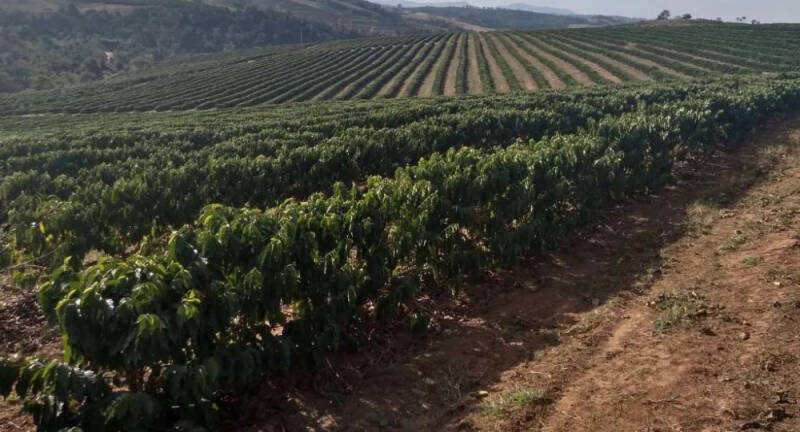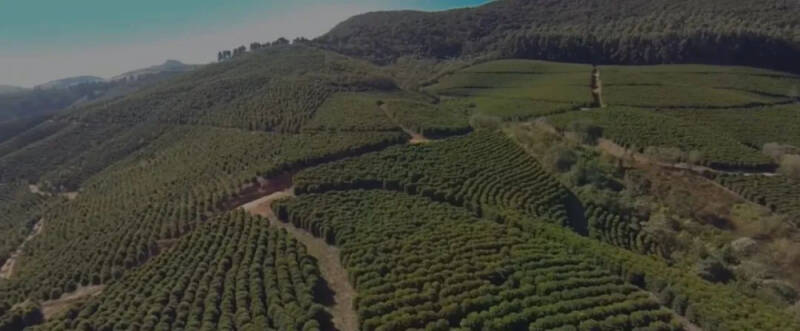Set a record for a single month! Brazilian coffee exports surge in October
Recently, according to a report issued by the Brazilian Council of Coffee exporters (Cecaf é), although logistics problems persisted, some 2.1 million bags (60 kg / bag) of coffee beans could not be shipped and exported in Brazil at the end of September, but Brazilian coffee exports reached a monthly high in October.
In October, Brazil exported 4.926 million bags of coffee beans, an increase of 11.6 per cent compared with the same period in 2023. It also broke the monthly record of 4.77 million bags in November 2020, an increase of 3.27%.
In addition, in October, the total export price of Brazilian coffee reached US $1.393 billion, and the export price of each bag of coffee beans was about US $282.8, an increase of 62.6 per cent over the same period last year. Among Brazil's major exporters, Germany became the main destination for Brazilian coffee beans between January and October this year, importing 6.64 million bags of Brazilian coffee beans, accounting for 23.9 per cent of total exports, an increase of 77 per cent over the first 10 months of last year.

According to the president of the Brazilian Coffee exporters Council, the export performance in October will be very beneficial to Brazil's coffee export trade, and the logistics team has worked very hard to find alternatives to coffee shipment. for example, dry bulk carriers have been used for shipment and export recently to fulfill delivery commitments to customers in various countries.
Although the export problem has been alleviated, there are still a large number of bagged coffee products stranded in the port, waiting for shipment. Due to the high delay rate of ship arrival and berthing, exporters still face huge logistics challenges in the export of coffee products.
In addition to coffee products, Brazil's exports of sugar and cotton have also increased significantly recently, with a great demand for containers, coupled with the lack of adequate infrastructure at ports to handle products shipped through containers, and recent policy changes by the Brazilian federal government, which have led to strikes by port workers and tax auditors, resulting in high ship delays and procrastination rates. It affects the port gate management and the terminal yard capacity.
Although coffee exports continue to grow, the coffee industry is still affected in many ways. Apart from port delays, climate and exchange rate issues have the greatest impact at present. In terms of climate, Brazil suffered its worst drought since 1981, and the drought caused widespread forest fires. It is reported that about 2238 hectares of forest fields in Brazil, including coffee and sugar cane plantations, have been affected. It eventually led to a decrease in coffee production in the new season, and also damaged the planting and yield potential of coffee in the new season of 2025x26.
Although recently, Brazil began to resume rainfall, but the rainfall is mainly concentrated in the southern Brazilian states of Sao Paulo, Parana and Santa Catarina. And Minas Gerais, the largest coffee growing area, also has rainfall, but the rainfall is relatively small, which is still lower than the historical average, and many experts believe that the current rainfall can restore moisture to the soil with serious water shortage. reduce the pressure on the roots of coffee trees, but can not make up for the previous drought and fire damage to some coffee trees, so coffee production in some serious areas may be reduced by 20% and 30%. Total coffee production in Brazil is likely to fall by more than 6.8%.
In addition, the Brazilian real has been falling against the dollar in recent days because the uncertainty of the Brazilian government's fiscal policy is related to US politics. The devaluation of the real makes Brazilian coffee more price competitive in the international market, but it also increases the cost of growing in Brazil, and port delays lead to the retention of coffee products, additional storage, etc., resulting in a reduction in final income and an increase in operational risk, which is not conducive to development. Coupled with the reduction in production in the new season, Brazilian coffee exports may slow down in the future.

For more information about coffee producing areas, please scan the code directly and follow: coffee comments.
Long press the QR code to follow:
Important Notice :
前街咖啡 FrontStreet Coffee has moved to new addredd:
FrontStreet Coffee Address: 315,Donghua East Road,GuangZhou
Tel:020 38364473
- Prev

Are you really a cow?! Chabaidao launches "Cat Grass Juice"
▲ Click to pay attention| Daily Boutique Coffee Culture Magazine Coffee Workshop Since Xi Tea launched the "Super Plant Tea" series in August, fruit and vegetable tea has become the new favorite of the milk tea industry. As a result, other peers have followed Xi Tea and launched different fruit and vegetable combinations. Fruit and vegetable juice, attracting consumers to buy. in recent
- Next

What is the Chaka batch of Ethiopia's Guixia Village Estate?
Ethiopia is recognized as the birthplace of coffee, and coffee has also become the country's main source of foreign exchange earnings. More than 4 million farmers produce coffee in Ethiopia, with forest coffee and garden coffee (pastoral coffee) as the main planting models, and only about 10% are coffee farms. When it comes to Ethiopia's coffee farms, the best known
Related
- What grade does Jamaica Blue Mountain No. 1 coffee belong to and how to drink it better? What is the highest grade of Blue Mountain coffee for coffee aristocrats?
- What are the flavor characteristics of the world-famous coffee Blue Mountain No. 1 Golden Mantelin? What are the characteristics of deep-roasted bitter coffee?
- Can I make coffee a second time in an Italian hand-brewed mocha pot? Why can't coffee be brewed several times like tea leaves?
- Hand-brewed coffee flows with a knife and a tornado. How to brew it? What is the proportion of grinding water and water temperature divided into?
- What is the difference between Indonesian Sumatra Mantinin coffee and gold Mantinin? How to distinguish between real and fake golden Mantelin coffee?
- What does bypass mean in coffee? Why can hand-brewed coffee and water make it better?
- Unexpected! Ruixing Telunsu lattes use a smoothie machine to foam milk?!
- % Arabia's first store in Henan opens into the village?! Netizen: Thought it was P's
- Does an authentic standard mocha coffee recipe use chocolate sauce or powder? Mocha Latte/Dirty Coffee/Salty Mocha Coffee Recipe Share!
- What is the difference between Vietnam egg coffee and Norway egg coffee? Hand-brewed single product coffee filter paper filter cloth filter flat solution!

